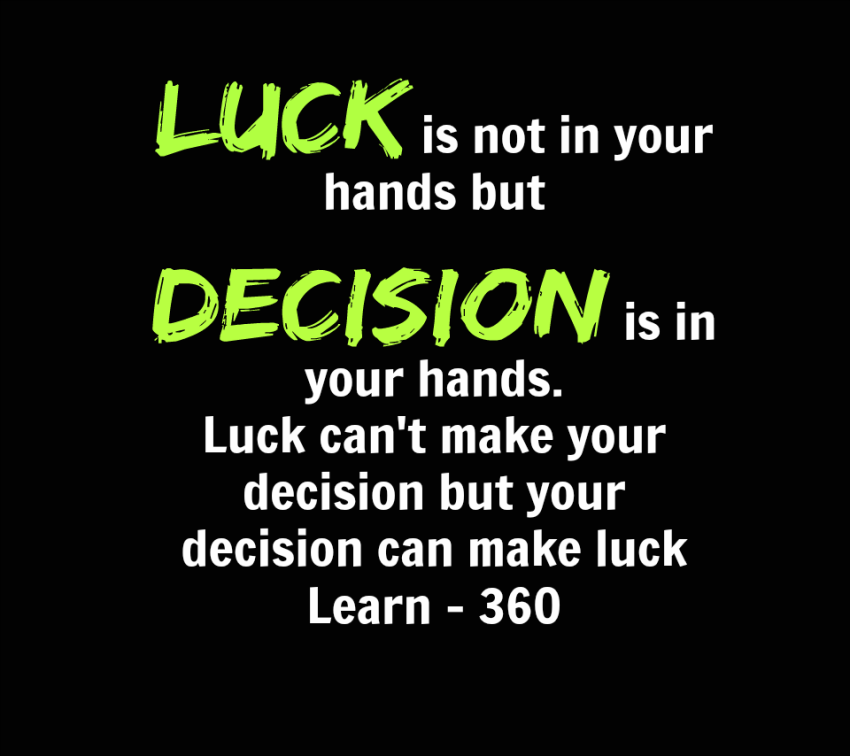Have you ever found yourself questioning whether luck is just a random occurrence or something that can be cultivated? The idea of “Can Luck Be Learned?” is a compelling exploration into the psychology of luck and how it intersects with our day-to-day lives, particularly in scenarios like playing the lottery. Many successful lottery winners share anecdotes that highlight strategies and patterns they believe have influenced their fortune. This blog post will delve into how individuals can learn luck through their choices and mental conditioning, providing insights from both winners and psychological research. By emphasizing personal stories and actionable lottery strategies, we strive to uncover whether enhancing luck is as simple as changing our mindset.
When we discuss the notion of luck, many might wonder if it’s merely a matter of fate or if it can be systematically achieved through specific actions and thoughts. By examining alternative terms like ‘fortune cultivation’ and ‘strategic probability’, we can better understand how people interpret their lucky circumstances. Recent discussions often focus on the experiences of lottery victors who attribute their wins to a combination of intuition, familiarity with previous outcomes, and deliberate number selection techniques. As we probe deeper into these narratives, the interplay between perceived advantage and genuine chance reveals fascinating insights. Ultimately, the conversation around learned luck encourages a mindset shift—transforming the random into the potentially predictable.
Exploring the Psychology of Learned Luck
The psychology of luck presents a fascinating area of study, delving into how our thoughts and beliefs about chance influence our experiences. Many individuals hold onto the idea that luck is purely random; however, emerging research indicates that one’s mindset can alter their perception of luck. Recognizing patterns and understanding past outcomes can lead to a more informed approach to chances, especially in high-stakes arenas like the lottery. This psychological aspect emphasizes the potential for cultivating a mindset that welcomes luck, revealing that our beliefs can significantly impact our successes.
Stories of successful lottery winners often reveal that their journeys to fortune are not solely based on random selection but, rather, are underpinned by a deeper understanding of luck’s nuances. For example, many winners have noted that they would track draws and analyze winning trends, indicating they didn’t simply rely on intuition but rather engaged in a systematic approach to selecting their numbers. This behavior aligns with the belief that luck can indeed be learned; by developing strategies rooted in psychology and personal experience, individuals can feel empowered to enhance their likelihood of hitting the jackpot.
Strategies for Enhancing Your Luck in Lottery Games
Adopting effective strategies to enhance one’s luck is essential for anyone looking to improve their chances of winning in the lottery. Many successful players advocate for personalized number selections—using dates of significant events or familiar numerical patterns derived from personal traditions. This approach not only makes the process more enjoyable but also connects players to their numbers emotionally. This emotional connection can cultivate a belief in luck, reinforcing the idea that personal strategies may influence one’s outcomes positively.
Furthermore, consistent participation in lottery games can foster a habitual belief in luck. Engaging in regular play sends a powerful message to the subconscious about one’s relationship with winning. Individuals who remain informed about lottery-tipping trends and market dynamics are better positioned to make educated choices. This, coupled with psychological conditioning strategies—like envisioning themselves as winners—can lead players to a heightened awareness of potential luck and opportunities, providing a foundation for successful lottery experiences.
Frequently Asked Questions
Can Luck Be Learned Through Lottery Strategies?
Yes, luck can be learned to some extent through effective lottery strategies. Successful lottery winners often attribute their wins not just to chance but also to systematic approaches, such as analyzing past winning numbers or employing personal number choices. By understanding trends and psychological factors influencing luck, players can enhance their probability of winning. This learning process involves patience, research, and a positive mindset, ultimately shaping one’s experiences with luck.
What Do Successful Lottery Winners Say About the Psychology of Luck?
Successful lottery winners often highlight the psychology of luck as a key factor in their winning experiences. Many believe that developing a positive mindset and understanding patterns in number draws can lead to improved outcomes. By engaging with the lottery in a proactive way, such as choosing significant numbers or collaborating with others, individuals can position themselves to better recognize and seize opportunities, thereby learning to enhance their perceived luck.
| Section | Key Points |
|---|---|
| Introduction | Explores the nature of luck in winning the lottery and questions if it can be learned. |
| Understanding Luck | Luck is viewed as uncontrollable, but personal mindset and choices can shape one’s luck. |
| Lottery Winners’ Stories | Winners often credit their success to strategies, not just chance; past patterns can aid in number selection. |
| Can Luck Be Learned? | Recognizing trends and personal strategies may enhance chances in lottery games. |
| Psychological Aspects of Luck | Winning impacts one’s perception of luck; optimism influences lottery engagement. |
| Strategies for Enhancing Your Luck | 1. Develop a unique method 2. Stay informed 3. Psychological conditioning 4. Shared play 5. Stay consistent |
Summary
Can luck be learned? This question lies at the heart of understanding how personal strategies and psychological factors interplay with the randomness of winning the lottery. As we’ve seen through the stories of various winners, while the outcome may be shrouded in unpredictability, there are numerous ways in which individuals believe they can influence their chances. By adopting unique strategies, staying informed and allowing psychological conditioning to play a role, it becomes clear that the journey to embracing luck is not purely a matter of chance. Hence, the narrative around luck transforms from mere belief to one of active participation and engagement, an idea that inspires many to rethink their approach when trying their luck in the lottery.
